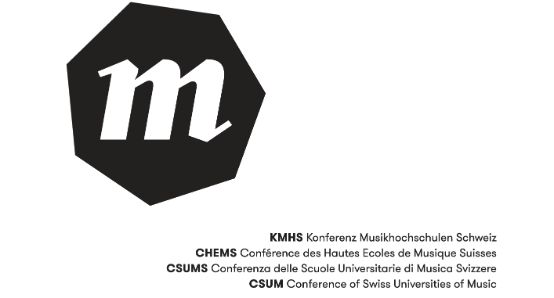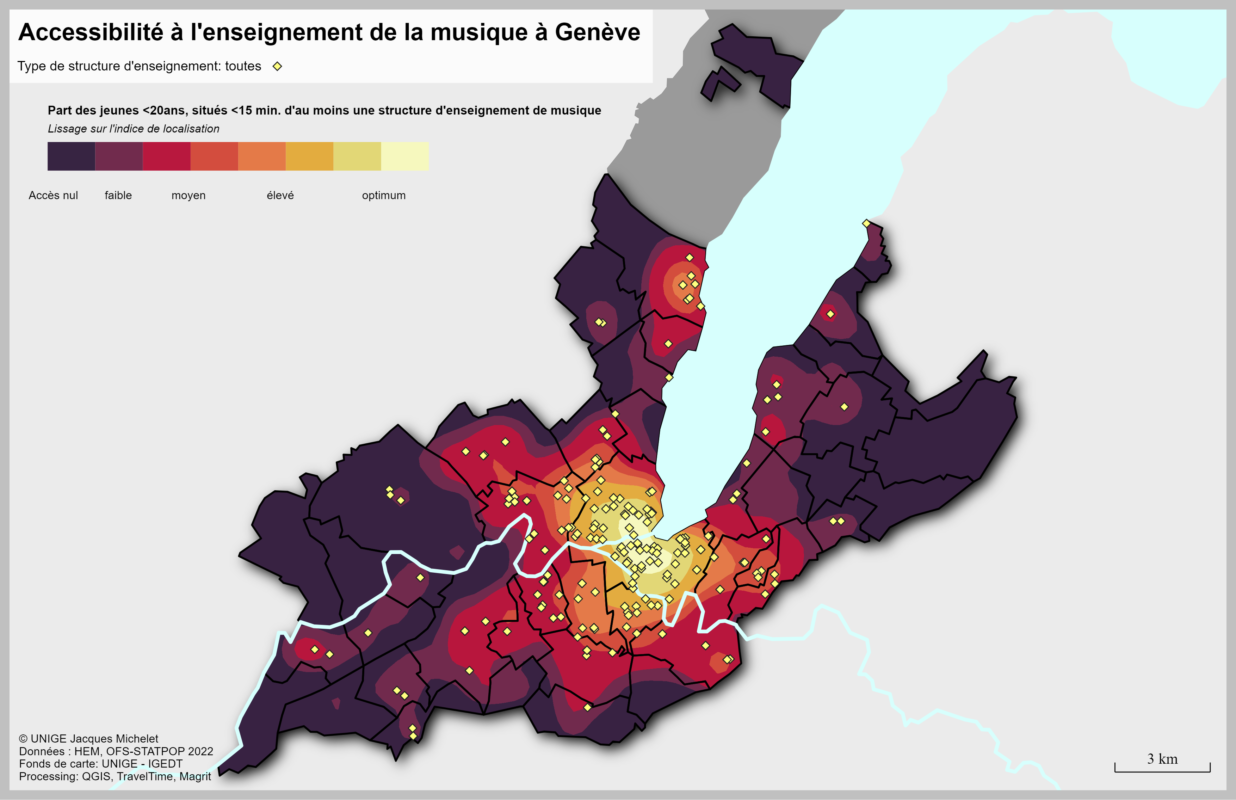HEMU - A new direction

A woman at the helm of the Haute Ecole de Musique Vaud Valais Fribourg and the Conservatoire de Lausanne.
The Haute Ecole de Musique Vaud Valais Fribourg (HEMU) is an educational institution renowned for its demanding and comprehensive training, as well as for its close ties with professional circles and its commitment to musical life. Multidisciplinary and multi-style, it covers all training profiles in classical, jazz and contemporary music. Located at the heart of Europe and French-speaking Switzerland, the HEMU offers university-level teaching to over 500 students of 39 different nationalities. Emphasizing both theory and practice, its Bachelor's and Master's programs are designed to facilitate access to the professional world. Its teaching staff, made up of many internationally renowned artists, guarantees its students a high level of supervision. Classical music, historically present at the Lausanne Conservatory (before the Bologna reform), has been taught at the HEMU for over 150 years. Alongside it, the jazz and contemporary music departments, offered exclusively in French-speaking Switzerland, were created in 2006 and 2016 respectively. These courses - which include performance, music education and composition - combine tradition, creation, research and development, with the aim of achieving, and helping others achieve, excellence. Each year, the HEMU produces over 300 public performances: concerts, workshops, etc. Masterclasses given by prestigious musicians and partnerships with world-renowned institutions provide students with gratifying formative experiences and, above all, enable them to build a network. Its Bachelor's and Master's programs are accredited by the Swiss Confederation and recognized internationally. Since 2009, the HEMU has been part of the "Music and Performing Arts" domain of the University of Applied Sciences Western Switzerland (HES-SO), the largest network of higher professional education in Switzerland, with almost 21,000 students at the start of the 2018-2019 academic year.
Matthias von Orelli - Noémie L. Robidas, violinist and previously Director of the Performing Arts Department at the Institut supérieur des arts de Toulouse, is the new General Manager of both institutions. A Quebecker, she has extensive professional experience as a musician, teacher, researcher and institution director.
Madam Director, I'm delighted that you've taken the time to speak with us. You took over the helm a few months ago. What are your first impressions?
I'm delighted and enthusiastic to be at the helm of such a fine sailing ship, which welcomes musicians from an early age right through to Masters level. I feel I can contribute to an entire music ecosystem. I found motivated teaching and administrative teams, proud to work at the HEMU-CL. I've also got to know the many talented pupils and students! This is a great source of inspiration for me!
You've known Switzerland for a long time. Has your perception of the country changed since you took up this new post?
Switzerland is a country where I've been able to spend some time over the past ten years, and to which I feel close, probably because of my Quebecois origins. Strangely enough, from a professional point of view, I feel more at home in Switzerland than in France, where I've lived for the last 7 years. I think this is due to the fact that I find here the values of simplicity and accessibility to hierarchy, without this calling into question respect for duties. I also believe that Switzerland has the same collective search for consensus. Of course, the accent is different (laughs).
You're dealing with an institution that has gone through a period of crisis and tension, which forced the former director to step down. Has this affected your work?
I'd be lying if I told you it didn't affect my work at all. My job is to help the team hoist the mainsail after the storm. Some people are still worried that the wind will pick up again, but that's normal. What I sense is that everyone wants to look forward! Accompanying change is part and parcel of any new governance, and it's a challenge I'm ready to take up!
You're originally from Canada and have been working in France for a long time: what are the differences - or similarities?
I got to know the Swiss music scene through the network of conservatories and music schools where I had the chance to give continuing education courses for many years. I was also introduced to the challenges of music in schools, having worked as a replacement teacher at the HEP-Bejune for 6 months. As for the music scene itself, I'm getting to know it now. I think that musicians in Switzerland, as in Europe, are fortunate to have good support from the state, numerous musical structures and a public that values art and culture. In North America, musicians often have to manage all their own projects and initiatives. Entrepreneurial skills are almost as important to a musician's success as talent.
You have a very international career. How do you see Switzerland's music academies in international comparison?
These are fine establishments offering top-quality courses that are, in my opinion, truly competitive on the international stage, which is why we are so attractive and why our students come from all over the world!
Switzerland's music colleges also face major challenges. Which do you think are the most important and urgent?
I believe that the main challenge for the future of our schools lies in their ability to adapt to an ever-changing professional environment. Our higher education institutions must not only keep pace with the needs of their students, but also anticipate the context their graduates will face in 10-15-20 years' time. Today, it is no longer enough to be an excellent instrumentalist to succeed and make a living from music. We need to equip our students with a broad portfolio of skills to ensure their professional future. To do this, we need to question some of our teaching habits, and review our study plans frequently.
Recently, a Swiss newspaper reported that many musicians often live for music, but not from music. In Switzerland, few people choose music as a profession. On the one hand, this is due to the fact that in Switzerland, children are not specialized from an early age, which is essential for music, but are offered different options. On the other hand, many Swiss people are not prepared to live solely "for" music, they want to live "from" music. Where do you see your school in this context?
That's a big question! I believe that the HEMU-CL has a role to play in revitalizing the music ecosystem in French-speaking Switzerland, by providing better support for local talent. Present in the cantons of Vaud, Valais and Fribourg, I believe more than ever that the HEMU-CL must act in synergy with conservatories and music schools so that we can create in young people the desire to surpass themselves by giving them role models, creating mentoring systems, and encouraging professors and directors from different institutions to work even more hand in hand. We need to swap ideas of competition for ideas of complementarity.
Digitalization is an omnipresent topic. Where do you see the opportunities of this technology for your Haute Ecole?
I have to admit that we're a bit behind on this front. Whether it's digital learning environments, applications, setting up digital learning communities or working in recording studios, there are many opportunities to be seized that are efficient and much more accessible than you might think. In fact, we'll be inaugurating a large-scale studio in Le Flon this autumn! But we have to keep in mind that all these technological innovations must remain at the service of pedagogy and music.
You've said that you want constructive dialogue within the institution, and that innovation and creativity are as important to you as excellence. What does this look like in practice?








